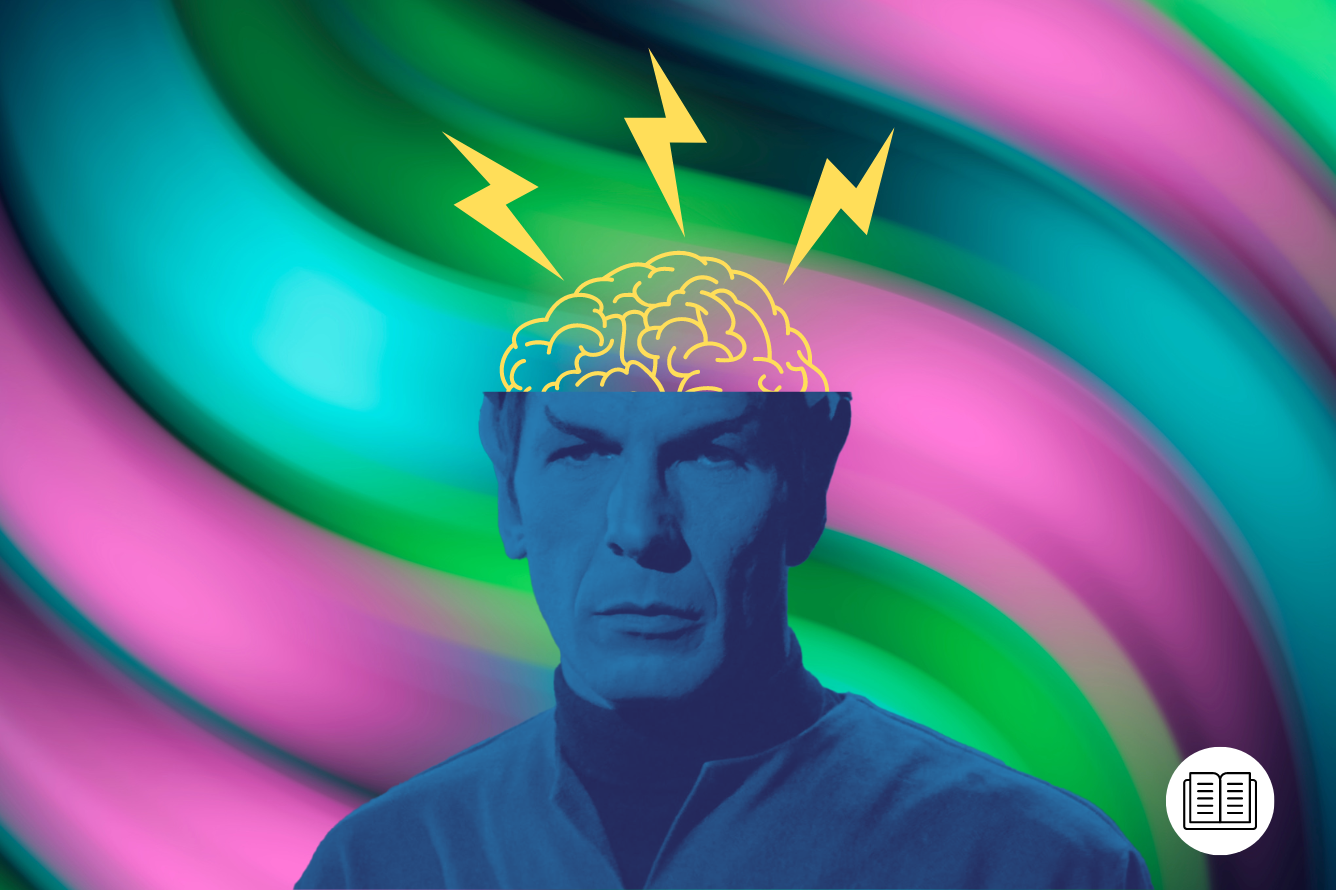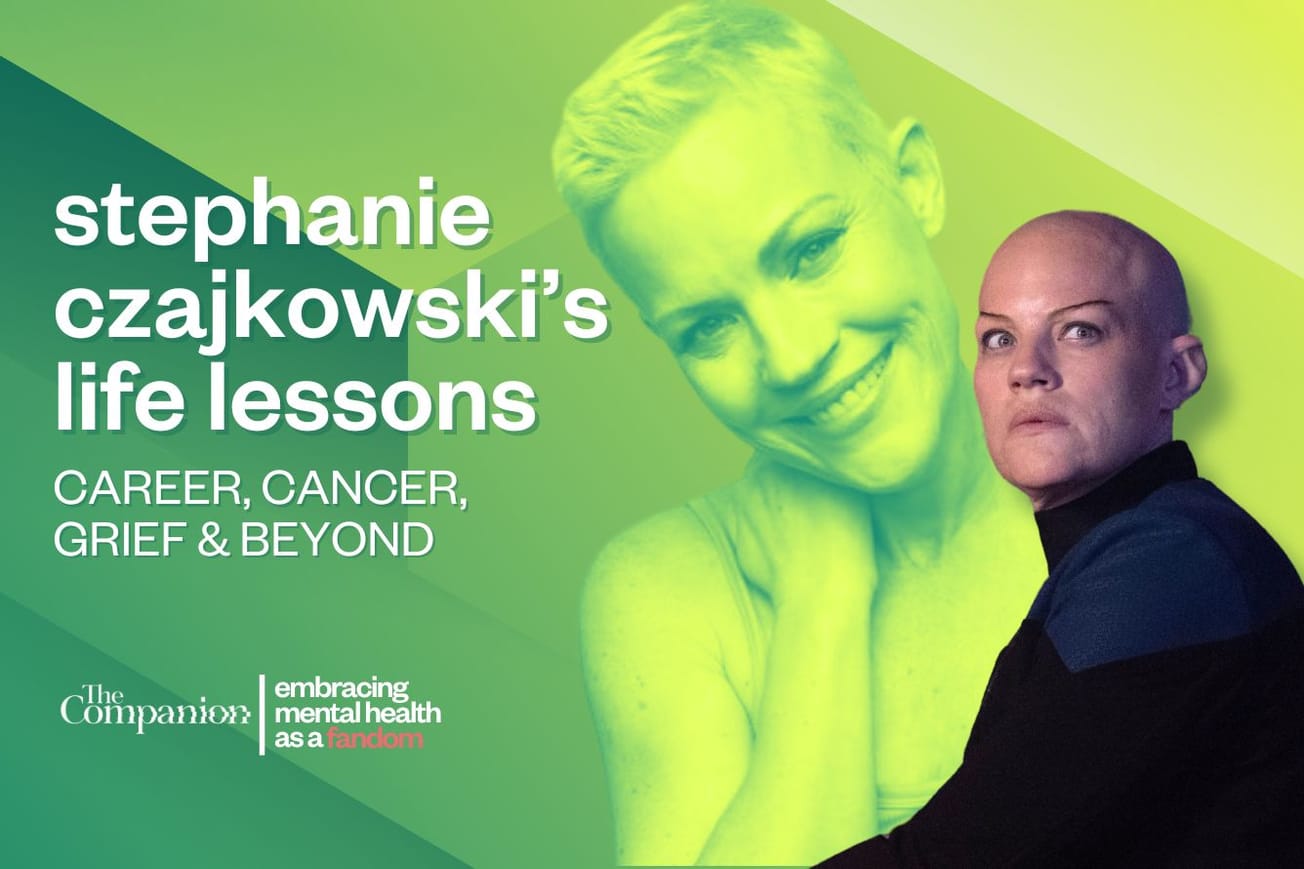In his A Tale of Two Cities (1859), Charles Dickens tells s us that: “It was the best of times, it was the worst of times...”, which immediately begs a question. Which was it? Best or worst? And that’s the thing about sweeping subjective comments - they’re personal to the author, rather than objectively based on the facts.
While researching my book about the Star Trek: The Original Series episode ‘Spock’s Brain’ (S3, Ep1), the one thing that I was constantly bombarded with (though I tried to steer clear from discussing until now) was the constant reminder that this episode was right at the bottom of the pile. I am not an apologist for the episode and indeed most of my book is spent looking at its faults, but I just don’t buy the whole ‘best versus worst’ obsession.
A simple Google search of ‘Worst Star Trek episode’ will return pages of results, and you don’t need me to tell you what’s the number one ‘winner’. This is of course partially driven by the population’s desire to consume snackable online articles comprising of ordered lists (or listicles), and dare I say much of the content is cannibalized from other work that’s chasing the same targets. It’s the ouroboros of Star Trek lists – a snake eating its own tail by endlessly repeating what has been written before and perpetuating the myth without adding anything new to the analysis. But this is not just the fault of the 21st-century web writers – the ‘worst ever episode’ fascination goes right back to the show’s cast and crew.
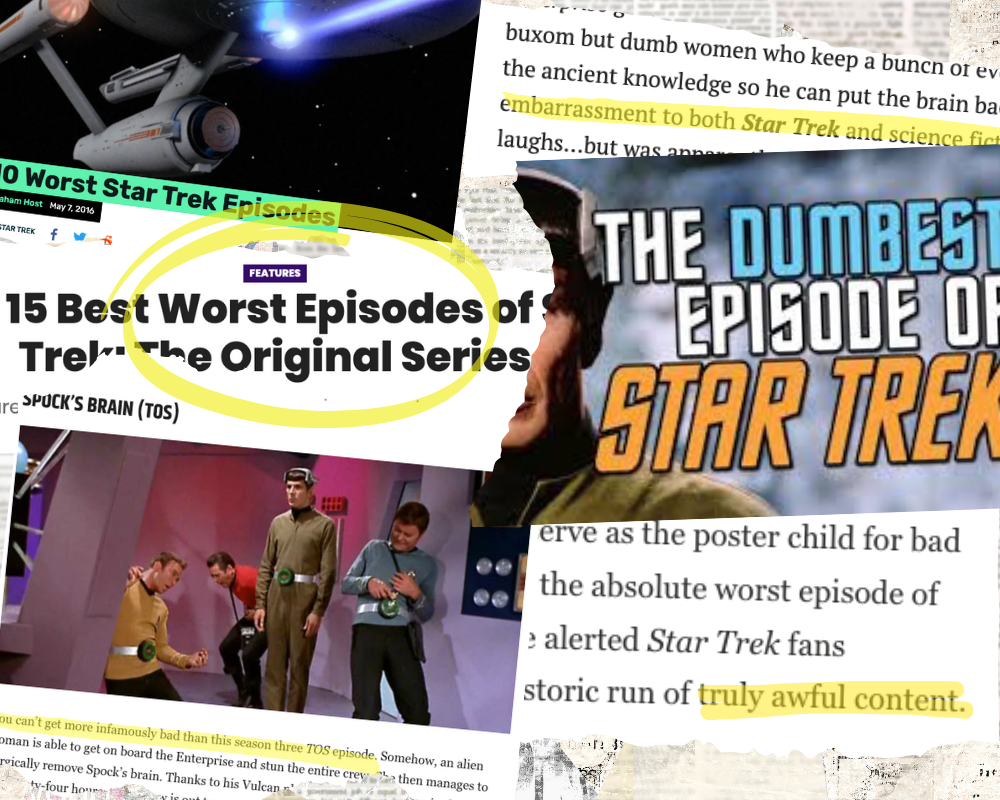
Let’s put something to bed – by any provable metric ‘Spock’s Brain’ is not the worst ever episode of Star Trek. Shatner, Nimoy, Nicholls, entertainment magazines, et al – none of them have actually been able to prove this status, they just state their own subjective views, based on personal recall and the myth that has grown up around its alleged badness. No scientific, episode-by-episode analysis has yet to come up with credible, measurable, appropriate rating categories that can be applied to each episode to determine an overall score.
In the absence of this, ‘worst’ is just an unproven label.
The Dangers of Criticism
But there’s also a danger in our obsession with ranking the best and the worst – a failure to recognize the human side. Admittedly, very few of the creatives who put ‘Spock’s Brain’ on the screen in the late 60s are here now to take offense at criticism, but this is something they’ve endured along the way. It’s easy to forget the human side of criticism as demonstrated in Colin Baker’s fallout with Doctor Who Magazine following their publication of The Mighty 200 poll in 2009 which ranked all 200 of Doctor Who’s stories at that time, with Baker’s 1984 introductory serial The Twin Dilemma coming last.
The poll’s intention was not to lambast the worst, but rather, to celebrate the top-performing stories, and yet the very mathematics of a poll meant there would also be a worst, compounding what many see as poor treatment of the Sixth Doctor and Baker by his employers and vocal detractors. The poll wasn’t just celebrating the cream of the show, but yet again twisting a knife in an old wound that Baker continued to be smarting from. We all recognize the toxic fan character of The Simpsons’ Comic Book Guy with his mantra of “Worst. Episode. Ever” and whether consciously or subconsciously we’re becoming accustomed to judging content through this prism.
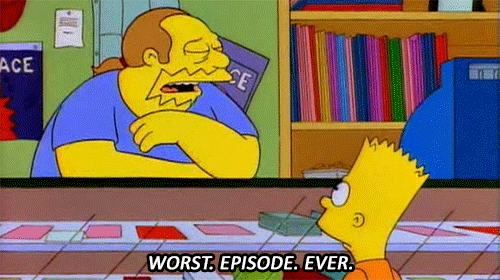
Ranking and polls serve many different purposes. As a newcomer to a series who doesn’t have the time or inclination to watch every single episode, what better way to get up to speed than to jump aboard with the best that the show can offer? Looking for recommendations from those with expert knowledge makes perfect sense to help make the best use of available time. But more often than not, a ranking can become a rabid expression of opinion and a desire to ratify an individual’s beliefs. I didn’t enjoy that episode for reasons X, Y, and Z and I won’t be happy unless everyone else agrees with me. There’s safety in numbers, and if we can all gang up together to flame an episode then so much the better. Inevitably, it all becomes a bit personal, with insults flying and the recognition that humans are involved in this lambasting quickly forgotten.
It’s easy to join the anti-‘Spock’s Brain’ mob – grab your pitchfork or bat’leth by the door – and give it a good pounding. It’s had over 50 years of brickbats to soften it up, so it’s an easy target now, but wouldn’t it be even more fun or challenging to say something positive about it?
In the interests of balance, I appreciate the shot by director Marc Daniels of Kirk (William Shatner) in front of the Enterprise viewscreen, achieved by rear-screen projection, and I’m also fond of the score by Fred Steiner, his last of the series. Yes, I still have an overwhelming sense that the mockery of feminism is distasteful and misguided and that if it really was meant to be a satire, it should have been much sharper and funnier, but I refuse to label it in absolute terms like ‘worst’.
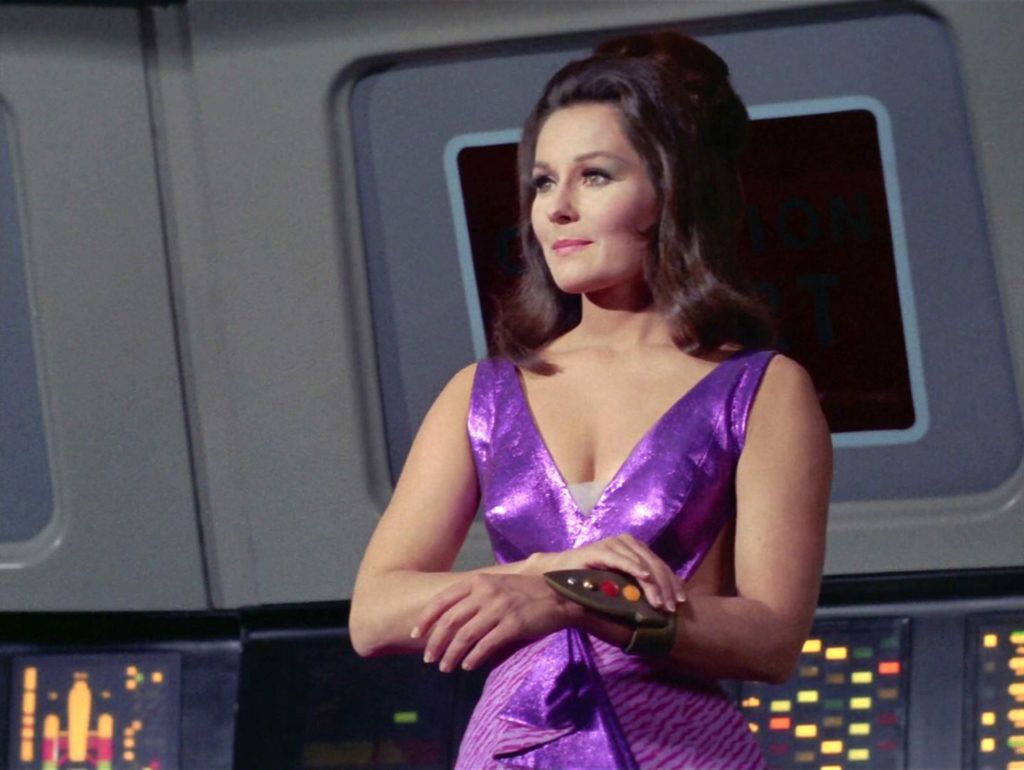
‘Spock’s Brain’ in Data
If you must obsess over figures, the Internet Movie Database (IMDb) has rankings of all episodes of Star Trek based on around 3,000 individual ratings out of ten. As of February 2022, ‘Spock’s Brain’ has a score of 5.7, which means that by this rating system alone it’s not the worst episode of TOS. It’s not even the worst episode of TOS Season 3, beating ‘The Way to Eden’ (S3, Ep20) at 5.4 and ‘And the Children Shall Lead’ (S3, Ep4) at 5.2. And consider that ten percent of those who submitted a score for the episode even gave it 10/10 versus nearly the 7 percent awarding 1/10. Go figure.
And if we really want to go down the rabbit hole and talk about the worst-ever episode of Star Trek as a franchise rather than just TOS, there’s The Next Generation’s ‘Shades of Gray’ (S2, Ep22) at 3.3 and ‘Sub Rosa’ (S7, Ep14) at 4.8, Voyager’s ‘The Fight’ (S5, Ep18) at 5.1 and Enterprise’s ‘These Are the Voyages…’ (S4, Ep22) at 5.3.
While those involved in TOS might not have expressed an opinion about every episode they created or appeared in, there’s no shortage of commentary on ‘Spock’s Brain’. Nichelle Nicholls recalled in her 1994 autobiography Beyond Uhura that:
“While the last leg of our network voyage did have its highlights […] the specter of ‘Spock’s Brain’ […] cannot be denied.”
William Shatner added in 1999’s Get a Life:
“Busty, vinyl-booted, frosted-lipstick-wearing, alien Amazons were suddenly snatching Spock’s brain […] That’s when the best thing that ever happened to Star Trek […] happened. We got canceled – for good.”
And of the Season 3 opener, he would conclude in 2008’s Up Til Now:
“Our first show that third season might have been a tribute to the NBC executives who so mishandled this show: it was about a society in desperate need of a brain.”
Clearly, there’s a lot of emotion here, and much of this narrative might be correct, but there’s a greater sense that because things were going wrong with the show, something needed to be singled out, not so much for blame, but as an example.
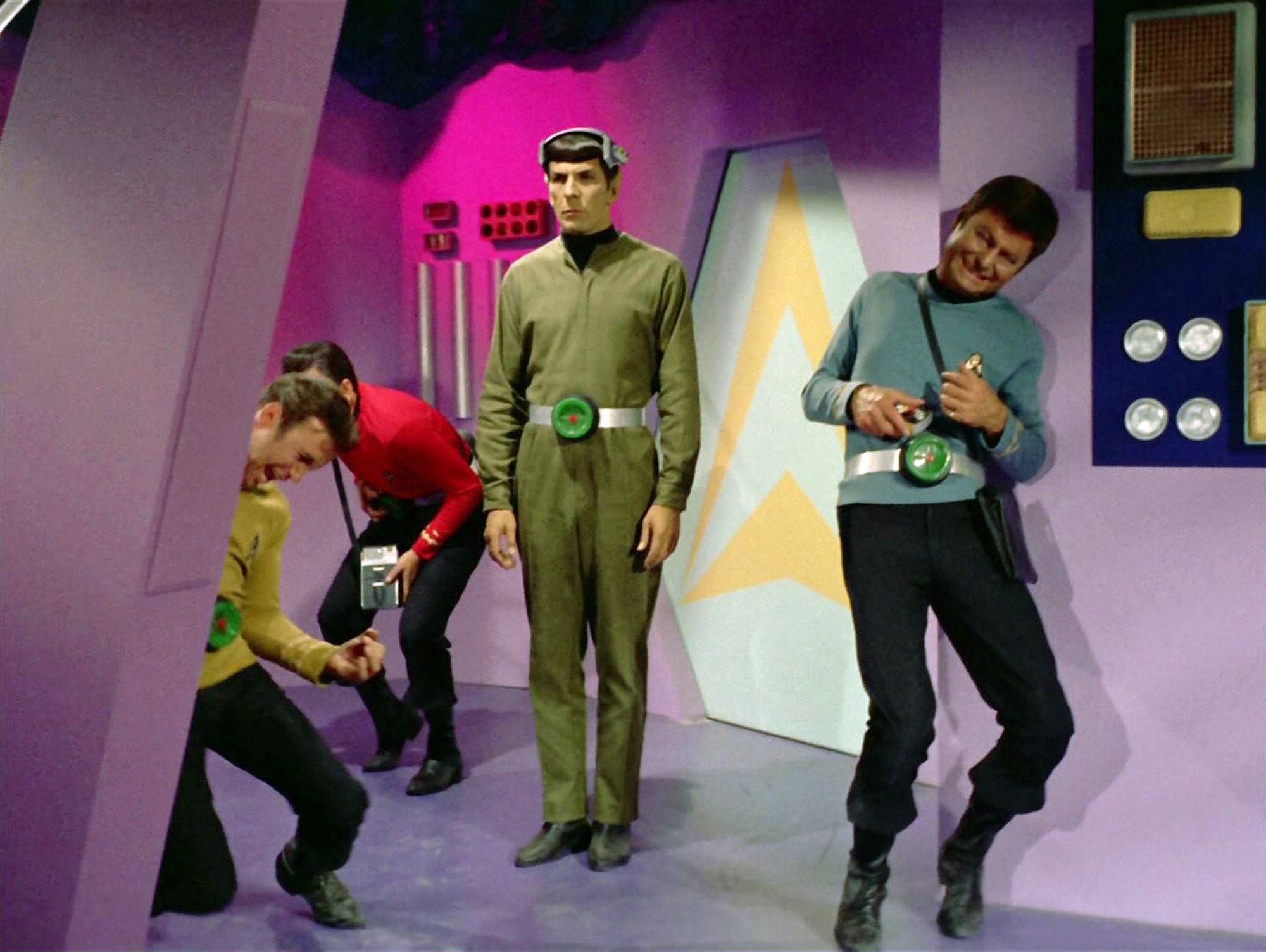
Even the episode’s eponymous character, Spock, got in on the act. In his second autobiography, 1995’s I Am Spock, Leonard Nimoy recalled: “Star Trek’s third season debuted with ‘Spock’s Brain’, an ominous portent of things to come,” and that “the Enterprise crew discover an extremely sophisticated underground civilization, populated by gorgeous women whose intelligence is even scantier than their minitogas.” He continues by contextualizing ‘Spock’s Brain’ within the TOS legacy.
“The point these inferior episodes make is this: Some work – especially in the science of arts – simply fills time and space. Yet, it might temporarily appease the bosses and pay the bills – but with the passage of time, that work is forgotten.”
And yet ‘Spock’s Brain’ bucks that trend, because people continue to talk about it when other episodes have faded away. It was a formulaic episode, in a show that was struggling to get new ideas after much of the original creative team had left. David Gerrold explains in The World of Star Trek (1973): “Formula occurs when format starts to repeat itself.” He continues: “Erosion in a TV series is the wearing down of the original concept […] carelessness in production, lack of pride, writer apathy.”
The Legacy of ‘Spock’s Brain’
Ultimately, ‘Spock’s Brain’ is whatever you make of it. In the words of Leonard Nimoy in his closing remarks to the Sci-Fi Channel screening of the episode: “Are you still keeping an open mind? No pun intended.” It’s folly to hate an episode of a show or to suggest that it alone marks a low point in terms of artistic merit. Much of my own ambivalence towards the hour is that its content represents the worst extremes of 1960s sexism, institutionalized within a show that was unlikely to be renewed for another year, with quality control going by the wayside. There’s no single, smoking gun here – television is made by committee, and it follows that in relative terms, some of the output will be weaker than the rest.
Marj Dusay played ‘Glamazon’ Eymorgs Kara and told Pat Jankiewicz in Starlog: “To some people, ‘Spock’s Brain’ is a cult episode, and to others, it’s just plain awful. I don’t know which it is, but I’ll let other people be the judge of its quality. If I can zap a group of men and take anything I want, that’s not stupid.” Love it, hate it, and anything in between – just approach it with your eyes wide open before you reach your conclusion, if indeed you need a conclusion.
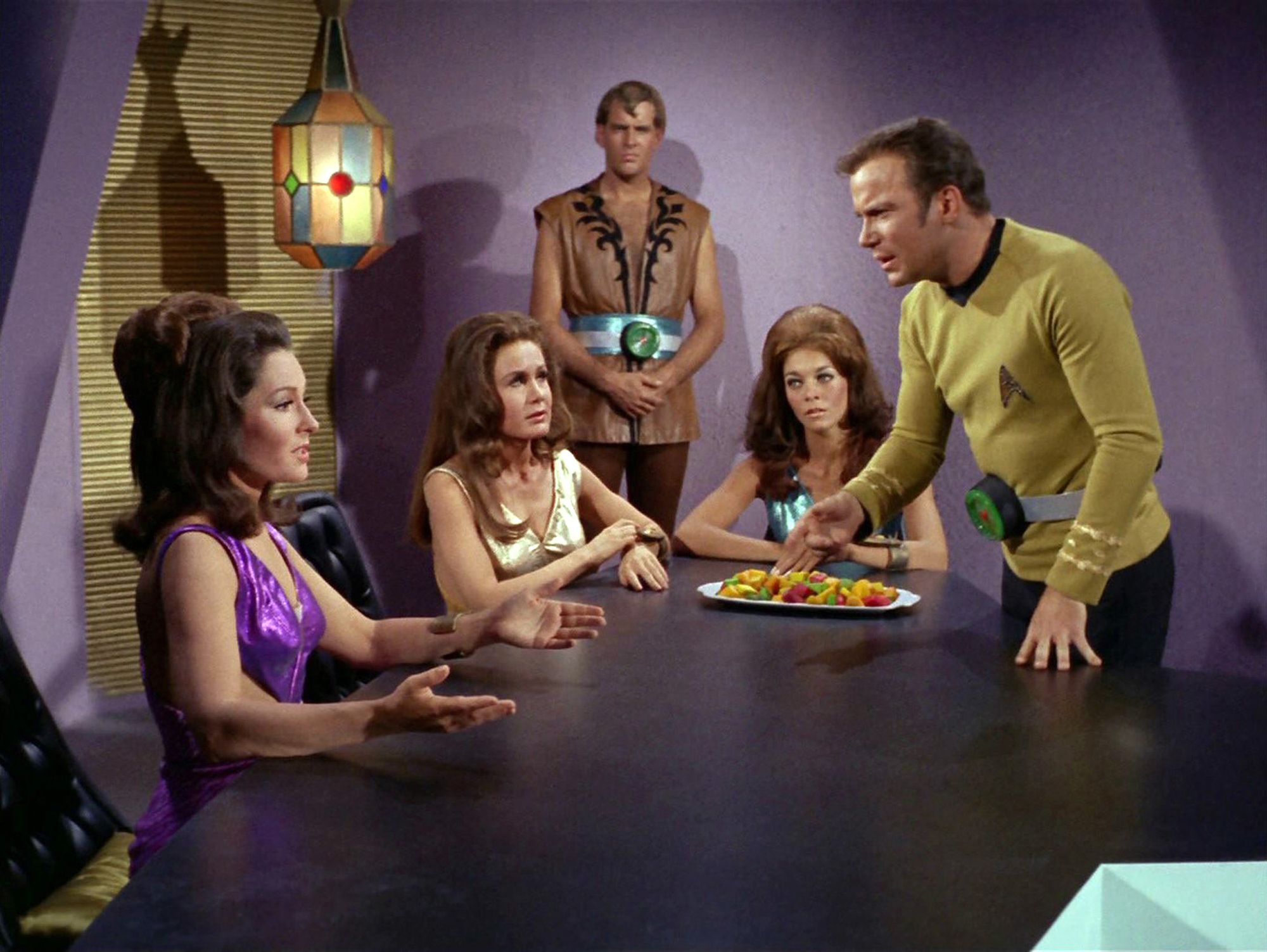
Writer and TOS historian Marc Cushman spent hours reviewing the memos and documents preserved from the production, now held in UCLA Library’s Roddenberry Collection. In discussions with me, he said: “Knowing Gene Roddenberry’s naughtiness when it came to the subject of sex, [writer] Gene Coon’s fondness for writing comedy, and director Marc Daniel’s resume […] I fully expect they were pulling NBC’s corporate leg with this episode. And NBC, seeming to miss the joke, chose ‘Spock’s Brain’ to launch the third season. I look at it in the same way as I look at ‘I, Mudd’ and ‘The Trouble with Tribbles’ – as one of Star Trek‘s occasional comedies, albeit it’s a seemingly less deliberate comedy.”
On a positive note, ‘Spock’s Brain’ has also proven to be an easy way to remember to evoke nostalgia – ‘Remember the one where Spock has his brain removed?’ This is illustrated during a short fantasy sequence in The Wonder Years (1988-1993) episode ‘Just Between Me and You and Kirk and Paul and Carla and Becky’ (S2, Ep5), four teenage boys beam down into a classroom and confront three girls in barely-appropriate-for-children approximations of the Eymorg. It’s not because they are mocking ‘Spock’s Brain’ per se – Paul as Spock still has a brain and is in Starfleet uniform rather than green boiler suit – it’s because the TOS episode has a high recall factor and exaggerates the show’s ingredients.
“It appears, Captain, that we are on an alien planet, inhabited by strange beings with long hair… and very short skirts,” smiles Paul as Spock. The narrator, the grown-up Kevin, explains: “Well, hey, since I was having the fantasy anyway, I figured I might as well do it right.” His dream, his rules, and it’s this filter of half-remembered facts that I believe for many has created this ‘worst ever episode’ mentality aimed towards ‘Spock’s Brain’ that’s really a hybrid of the worst moments from the series’ run.
We’ll finish with the thoughts of Leonard Nimoy on the concept of ‘Spock’s Brain’: “[It’s an] interesting idea. It becomes a story of execution. Does the story execute well? Is it shot well? Does it play well on its feet?” And let’s add to that. Is it boring? Never. Is it camp nonsense? Most definitely. But in the circumstances under which it was made, its very existence feels like an achievement.
This article was first published on February 22nd, 2022, on the original Companion website.
The cost of your membership has allowed us to mentor new writers and allowed us to reflect the diversity of voices within fandom. None of this is possible without you. Thank you. 🙂


